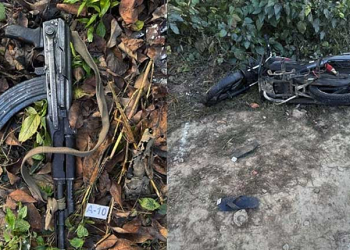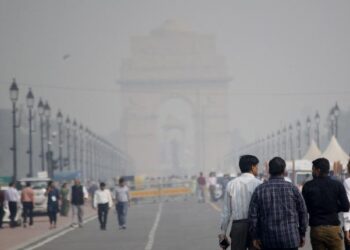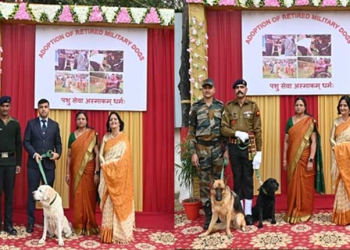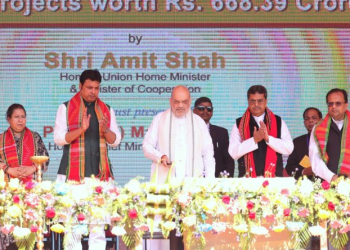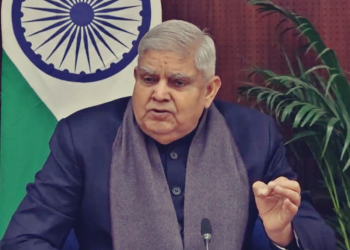New Delhi: Though the government is committed to making India Tuberculosis-free by 2025, the ‘END TB’ programme initiated by Prime Minister Narendra Modi in March 2017, looks indecisive five years ahead of the global target of 2030, public health experts said on the occasion of World Tuberculosis Day, globally observed on March 24 every year.
Covid-19 has played a big role in derailing efforts and reversed the gains made so far in controlling the infectious disease both in India and worldwide. It is because healthcare resources were diverted to combat the rising Covid cases that affected diagnosis, notification and treatment as well as nutrition post treatment, which also contributed to relapse cases.
A study by the ‘Stop TB Partnership’ in May 2020, suggested that the Covid pandemic could lead to an additional 6.3 million TB cases globally between 2020 and 2025.
In March last year, an analysis by the health ministry notified that Covid brought down TB detection by 25 per cent in India in 2020. The decreases occurred in both the public and private sectors. While there has been some recovery subsequently, but not to 2019 levels.
“As 2025 is only three years from now, it doesn’t seem that we will be able to achieve the target and Covid has played a big role. It seems that it will take at least 20 years to eradicate TB and to meet the target that India has set as a goal,” Pratibha Pandey, Sr Health Specialist at non-profit ChildFund India, told IANS.
“We applaud the commitment of our partners in the Health Ministry and state governments towards ending TB by 2025, but recognise that the Covid-19 pandemic has put ‘End TB’ progress at risk as funding and momentum for programmes and treatments has stalled,” added Vaishakhi Mallik, Associate Director, South Asia for Policy, Advocacy and Communications, Vital Strategies – a global public health organisation.
The major problem with this has been the notification. Though there is a big team of health workers, the notification is not as per the mandates and the contact tracing and identifying the latent TB is very low.
Another problem is the relapse cases happening again and again. For example, nutrition support is a big requirement for patients who have just recovered from TB, but the food insecurity in our country is huge.
“Unless and until we don’t identify the underlying causes, the social determinants, we may not be able to eradicate TB from our country,” Pandey said.
Furthermore, tobacco is also a concern and achieving the goal of ending TB in India is difficult unless tobacco use is simultaneously addressed, the experts warned.
TB among children is also a major challenge as diagnosis is difficult. Children struggle to produce sputum – the specimen which allows simple detection of the bacterial infection. Also, the diagnosis is difficult to establish whether the child is having a TB or not. In India, only 6 per cent of TB cases reported to the Revised National Tuberculosis Control Programme (RNTCP) are children.
“If we look at the burden of TB among children, around 10-12 per cent of children have it. But the identified children with TB is less than 6 per cent in India, which means there are children that are not detected under the TB control programme,” Pandey said.
“Childhood TB in India is estimated to be approximately 10 per cent of total adult incidence. While the exact numbers remain unknown, it can be extrapolated that India comprises 2,20,000 children with TB, annually,” Dr Sarabjit S. Chadha, Regional Technical Director, India and SE Asia, at global non-profit FIND, told IANS.
TB treatment among children has also been a challenge due to the long duration. A shorter regimen – 4-month regimen rather than the standard 6-month regimen – now approved by the WHO will ensure improved compliance and will also reduce the exposure of medicines and their side effects especially among children, Chadha said.
While not entirely unachievable, eradicating TB needs effective response which requires significant resources, including increased funding, training and protecting health workers, reinforcing systems for health.
Government’s new door to door TB screening programme is one such major effort that will help effectively trace, test and treat TB cases on time.
There is also a need to “reinvest in TB prevention and treatment programmes as well as urgently implement proven policies that push tobacco products further out of consumers’ reach”, Mallik said.
(IANS)




